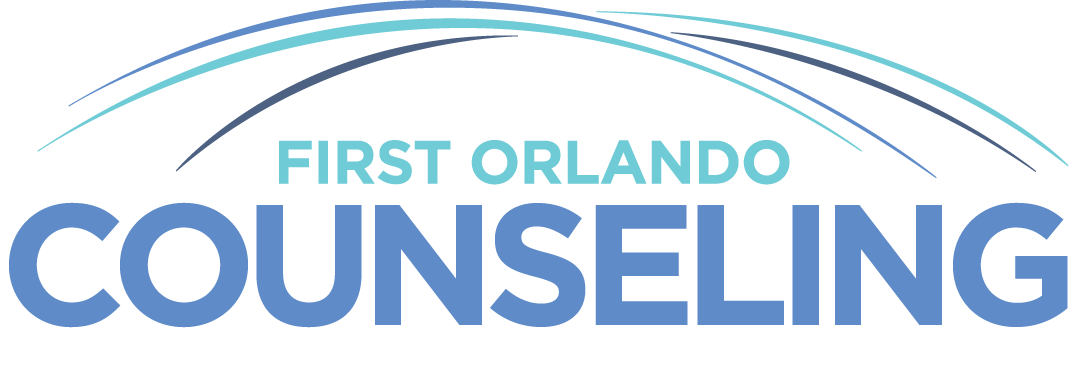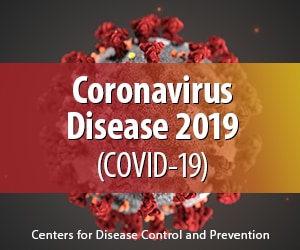COVID-19 and Teletherapy
In this time of social distancing and fear of infection, First Orlando Counseling Center is here for you. We are still working to provide counseling services for whatever you may be facing. During this time of increased anxiety and diminished social connection seeking mental health care is easier than ever because you can do it from the comfort of your own home. Our team is available for online Teletherapy through our secure Telehealth platforms. You can schedule an appointment to meet with your therapist Online through our scheduling portal or by calling our front office team at 407-514-4470.
Coping with COVID-19
The COVID-19 outbreak has been a stressful experience for many people. Overwhelming media exposure, financial uncertainty, and a significant change in our daily routines can elicit strong emotional responses for both children and adults.
We all manage our stress in different ways, but our differences make our community stronger. This diversity of perspectives helps us comfort and support each other in staying physically and mentally well as we respond to the developing situation.
Those who may be more vulnerable to COVID-19 related anxiety concerns may include:
The elderly and those with health profiles that put them at higher risk
Kids and Adolescents
Health Professionals and First Responders
People with preexisting mental health conditions
Signs that you or a loved one are struggling to cope with anxiety about COVID-19
Persistent or intense fears about the possibility of infection to yourself or your loved ones
Appetite or Sleep pattern changes
Trouble Concentrating
Existing health problems getting worse (Blood Pressure, Heart Rate, Breathing, Digestive issues)
Drug or Alcohol use
If you have been diagnosed with a mental health or physical condition, you should continue seeking treatment through the means provided by your healthcare providers.
What can you do to manage your stress?
Reduce your exposure to media about the Virus by rationing your news intake. Perhaps only checking in with social media or news outlets at specific times for specific durations.
Maintain your physical health by eating well, exercising, keeping a normal sleep schedule, and avoiding drugs and alcohol.
Practice mindfulness or meditation. Take time to breathe deeply and clear your mind to focus on the present. (apps and guided meditation can help)
Play. Take time to do enjoyable activities.
Spend time talking with others by voice call, video chat, or text message (not just about health concerns).
Know the facts from the CDC and avoid indulging the forecasts of non-health experts
How can you help your children and teens?
Kids and Teens take the lead on how to react from us. If we are freaking out, most likely they will be freaking out. If we can offer confident and clear explanations of what is going on and how we are making preparations for our families, most kids and teens will feel more at ease. Some young people are more susceptible to stress or may have mental health conditions that may be intensified by this perceived threat.
Speak to your children about COVID-19 sharing the present facts and prevention information in a way they can understand and manage emotionally.
Validate your child’s concerns while explaining their safety with you and the steps the community is taking.
Reduce the amount of media exposure in your home. Kids can misunderstand COVID-19 reporting in a way that creates distress for them.
Set up a routine so that your child can find comfort in knowing what is happening next in their day.
Model healthy living behaviors.
Some mental health symptoms to be aware of include:
Crying excessively or being unusually Irritable
Regression or displaying behaviors from previous developmental stages like trouble with toileting or changes in speech patterns
Uncharacteristic Outbursts of Anger
Intense Fear, Worry, or Sadness
Changes in diet or sleep patterns
Changes in school performance
Increased difficulty focusing
Loss of interest in enjoyable activities
Aches and Pains not attributed to injury or other conditions
Alcohol, Nicotine, or Substance use
If you or a loved one is struggling to maintain mental health during this outbreak, please reach out to us to schedule an appointment with one of our counselors.
If you are in crisis or having thoughts of harming yourself or others, call 9-1-1 immediately.
Other helpful resources include:
The National Suicide Prevention Lifeline a 24−hour crisis center or dial 911
1−800−273−TALK (8255)
Text the Crisis Text Line The Crisis Text Line is free, 24/7 support for those in crisis.
Text "Home" to 741741 from anywhere in the US to text with a trained Crisis Counselor.
Contact your mental health provider.
Get help from your physician or other health care provider.
Reach out to a friend, family member, or other social support.
The information provided is not for diagnostic use or a substitute for mental health care. A mental health professional can make a proper assessment of your symptoms and help you recover.
For the latest information about the COVID-19 outbreak, consult the CDC for reliable information to keep you and your family healthy and safe. You can get to their website by clicking the photo link.


